MercoPress. South Atlantic News Agency
Environment
-
Saturday, February 28th 2015 - 06:48 UTC
Falklands historic link to Antarctica exploration unveiled in unique memorial
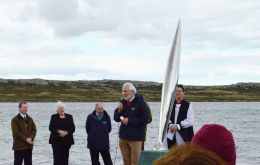
The Falkland Islands historic link as the gateway for British Antarctic exploration was acknowledged this week with the dedication in Stanley's Dockyard Point of the southern component of a unique memorial to the 28 men and one woman of the British Antarctic Survey (BAS), and before that the Falkland Islands Dependencies Survey (FIDS) who have perished in the Antarctic since the establishment by the British Government of the first permanent research base there in 1944.
-
Wednesday, February 25th 2015 - 17:39 UTC
Antarctic wildlife research fund launched in Australia with Norwegian support
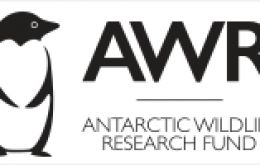
The Antarctic Wildlife Research Fund (AWR) was unveiled at a ceremony in Australia, with the aim of strengthening the scientific basis for the management of the Southern Ocean and the Antarctic Region.
-
Friday, February 20th 2015 - 16:53 UTC
Gobbling penguins can taste only sour and salty food, reveals study

Penguins can taste only sour and salty food, scientists have discovered. A genetic study suggests the flightless birds lost three of the five basic tastes long ago in evolution. Taste is critical for survival in most animals, but may not matter in the penguin, which swallows fish whole, say researchers in China and the US.
-
Friday, February 20th 2015 - 04:27 UTC
Bitter frigid air causes record breaking temperatures in East US and Canada

Bitterly cold air from Siberia has brought dangerously frigid and likely record-setting temperatures to the eastern half of the US. Temperatures are 20 to 40 degrees F below normal for February from the Mid-Atlantic to the South.
-
Thursday, February 19th 2015 - 05:30 UTC
Ascension and South Sandwich islands proposed for marine protected areas
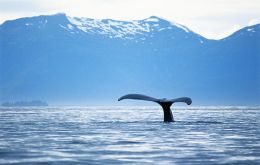
Ahead of the May 7 British general election, a coalition of conservationists and high-profile supporters has called upon the UK government to create three marine reserves that together would more than double the world’s protected waters, reports Inhabitat.
-
Thursday, February 19th 2015 - 00:01 UTC
China celebrates 30 years of first research station in Antarctica
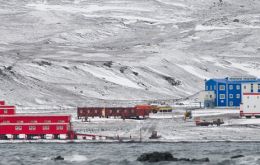
China is preparing to mark 30 years of polar expeditions, when on 20 February 1985 opened its first permanent research station in Antarctica, The Great Wall on King George Island. Since then China has continued to advance and is now planning the fifth permanent station.
-
Monday, February 16th 2015 - 09:06 UTC
Researchers propose high seas fishing ban and concentrate on coastal catches
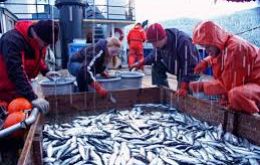
Closing the high seas to commercial fishing could distribute fisheries income more equitably among the world's maritime nations, according to research from the University of British Columbia (UBC).
-
Monday, February 16th 2015 - 08:17 UTC
Desperate struggle in New Zealand to save tens of stranded pilot whales

About 140 pilot whales that stranded themselves on a remote stretch of New Zealand beach have died, but conservation workers and volunteers are hoping the remaining 60 or so will survive after they managed to get them refloated, an official said over the weekend.
-
Friday, February 13th 2015 - 09:32 UTC
Falklands image in National Geographic Traveller photo competition
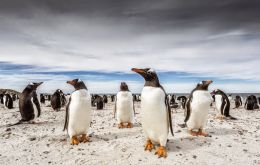
National Geographic Traveller (UK) has confirmed the finalists of its fourth Photography Competition 2015 which in the Animal category includes an image of penguins at Bleaker Island in the Falklands.
-
Sunday, February 1st 2015 - 21:52 UTC
First tranche of Chinese loan to build dams in Argentine Patagonia; CFK en route to Beijing

The construction of the Nestor Kirchner and Jorge Cepernic dams in Santa Cruz, Patagonia is finally set to begin now that China has deposited the first 287.7 million dollars tranche of funding for the massive 4.71 billion project, Argentine President Cristina Fernández announced before leaving for a state visit to China.
